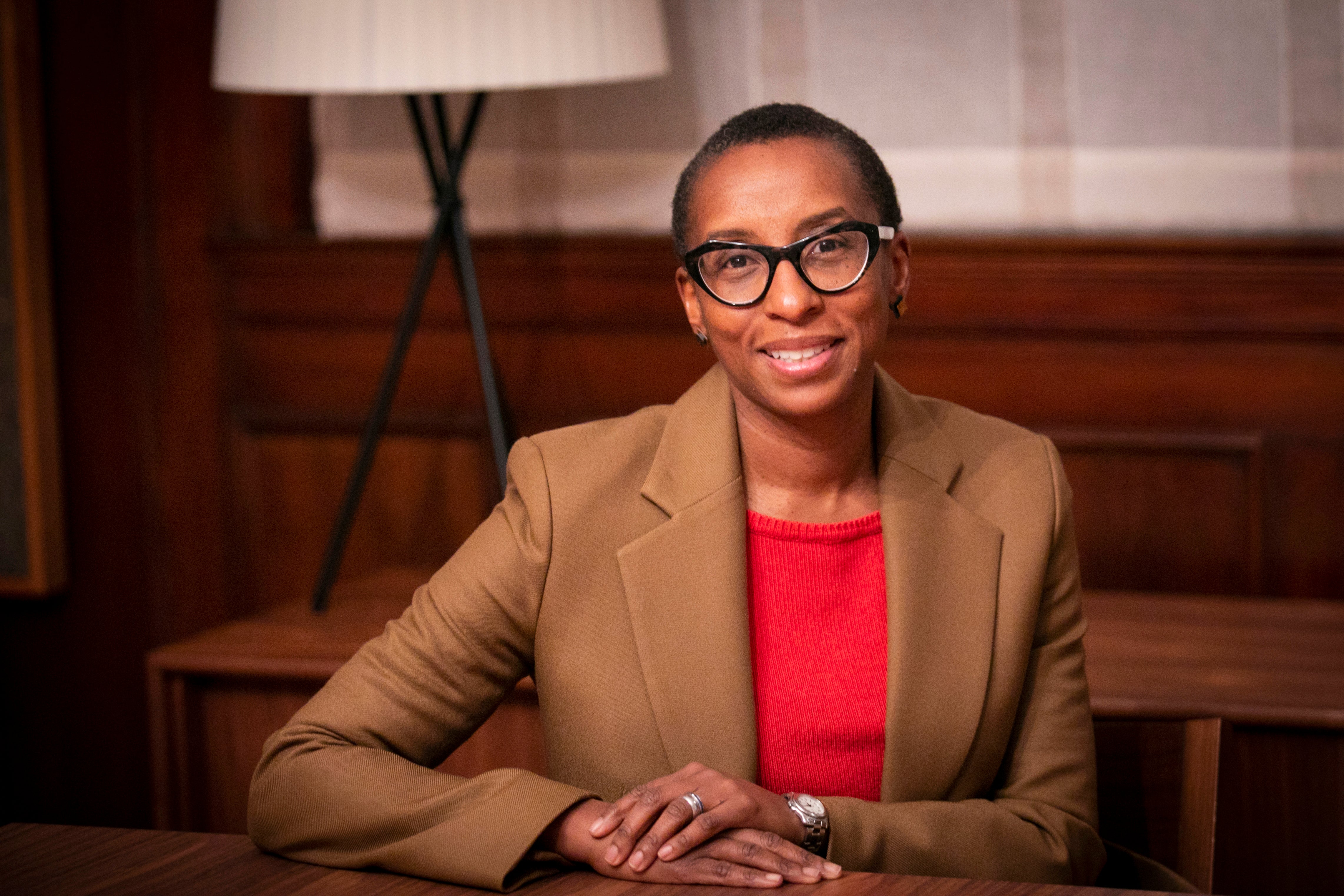Claudine Gay to be Harvard's 1st Black president, 2nd woman
Harvard University has named Claudine Gay as its next president, making her the first Black person and the second woman to lead the Ivy League school

Your support helps us to tell the story
From reproductive rights to climate change to Big Tech, The Independent is on the ground when the story is developing. Whether it's investigating the financials of Elon Musk's pro-Trump PAC or producing our latest documentary, 'The A Word', which shines a light on the American women fighting for reproductive rights, we know how important it is to parse out the facts from the messaging.
At such a critical moment in US history, we need reporters on the ground. Your donation allows us to keep sending journalists to speak to both sides of the story.
The Independent is trusted by Americans across the entire political spectrum. And unlike many other quality news outlets, we choose not to lock Americans out of our reporting and analysis with paywalls. We believe quality journalism should be available to everyone, paid for by those who can afford it.
Your support makes all the difference.Harvard University announced Thursday that Claudine Gay will become its 30th president, making her the first Black person and the second woman to lead the Ivy League school.
Gay, who is currently a dean at the university and a democracy scholar, will become president July 1. She replaces Lawrence Bacow, who is stepping down and has said he wanted to spend more time with family.
“Claudine is a remarkable leader who is profoundly devoted to sustaining and enhancing Harvard’s academic excellence, to championing both the value and the values of higher education and research, to expanding opportunity, and to strengthening Harvard as a fount of ideas and a force for good in the world,” Penny Pritzker, senior fellow of the Harvard Corporation and chair of Harvard’s presidential search committee, said in a statement.
With Gay’s appointment, women will outnumber men as chiefs of the eight Ivy League schools. Dartmouth and the University of Pennsylvania appointed women earlier this year, joining Brown and Cornell. Columbia, Princeton and Yale are led by men.
Gay will be the only Black president currently in the Ivy League and the second Black woman ever, following Ruth Simmons, who led Brown University from 2001 to 2012.
Drew Faust was the first woman to be president at Harvard. A noted historian of the American South and the Civil War, she stepped down in 2018 after 11 years.
Bacow, who took over as president in 2018, expanded and updated the university’s teaching and research missions and fostered cooperation across disciplines to address complex issues including climate change and inequality.
Under his leadership, Harvard joined the Massachusetts Institute of Technology in a legal challenge to the Trump administration’s decision to make international students leave the country if they planned on taking classes entirely online in fall 2020 at the height of the pandemic. He criticized the policy for its “cruelty” and “recklessness.”
Harvard became one of the first universities to switch to remote learning early in the pandemic, and Bacow and his wife tested positive for COVID-19 in March 2020.
Harvard also faced challenges during his tenure. The university survived a legal challenge to its admissions policies in U.S. District Court, a case that is now being weighed by the Supeme Court.
It was also disclosed that disgraced financier Jeffrey Epstein visited Harvard’s campus more than 40 times after his 2008 sex crimes conviction — long before Bacow’s tenure — and was even given his own office.
Gay’s early challenges could include fallout from the Supreme Court’s review of the use of race in admissions. The court is weighing challenges to processes at Harvard and the University of North Carolina, which consider race among many factors when choosing students.
Lower courts have upheld practices at both universities, rejecting claims that they discriminated against Asian American applicants. But in oral arguments this year, the high court’s six conservative justices expressed doubts about the practice, which has been upheld under Supreme Court decisions reaching back to 1978.
___
Associated Press education writer Collin Binkley in Washington, D.C. contributed to this report.